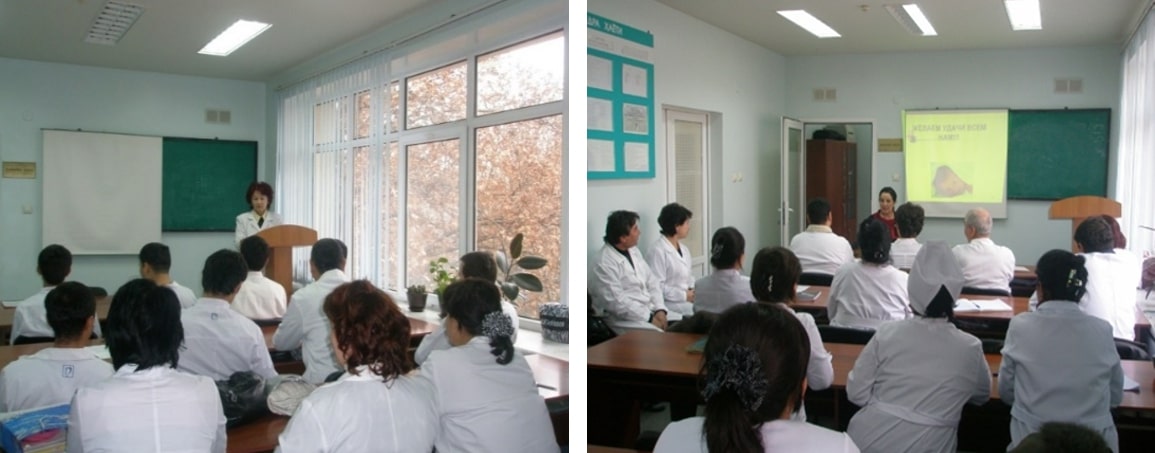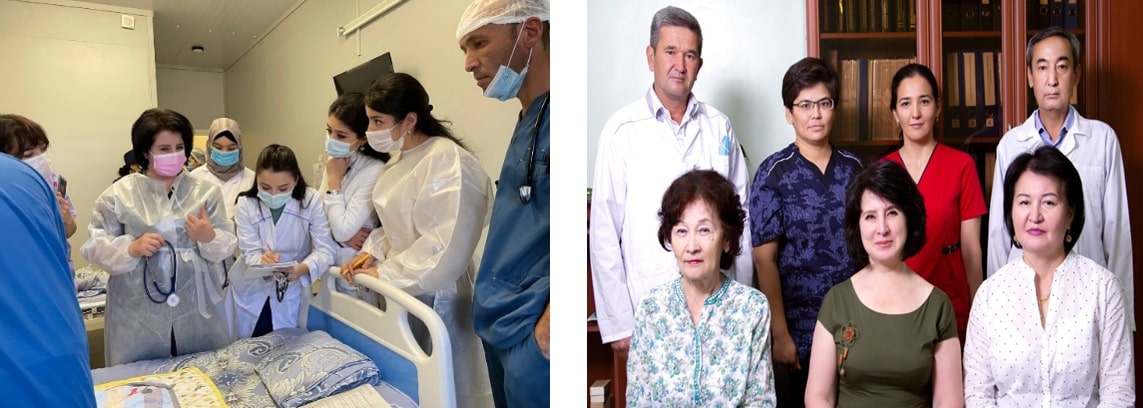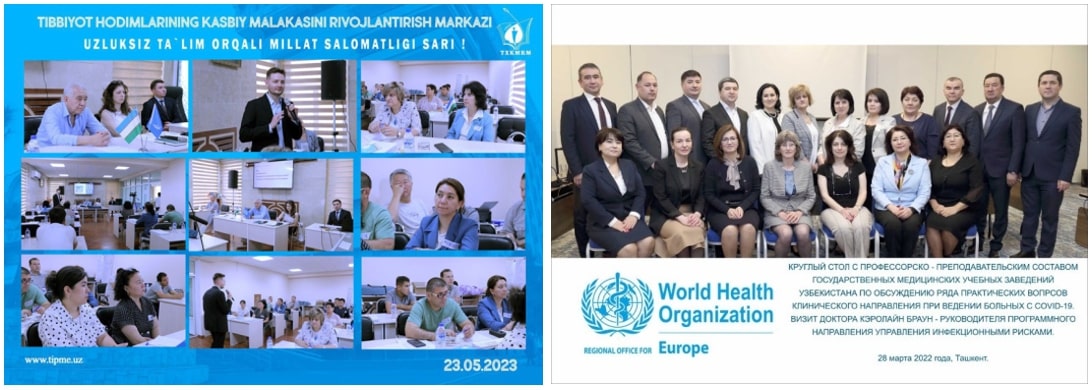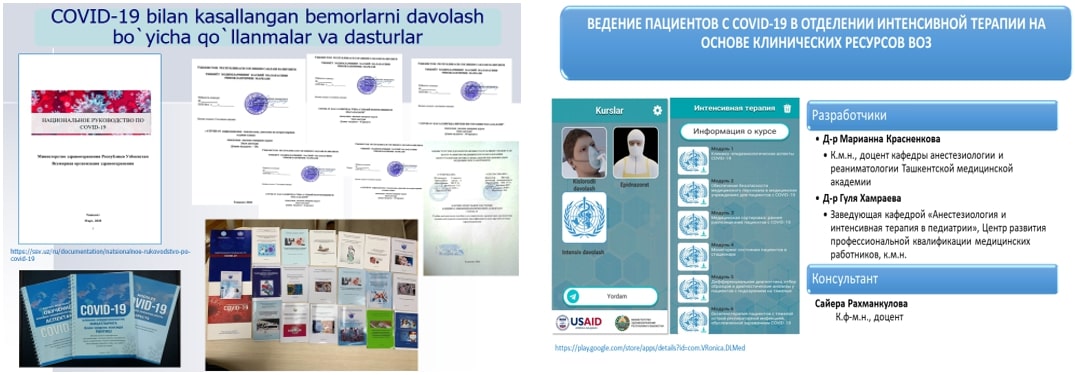More than 200 doctors are trained at the department annually. In the process of teaching, modern pedagogical technologies are used. Much attention is paid to the independent work of doctors - cadets with literature, training is provided to work on the Internet.
Currently, the department is an active participant in international intensive care programs in the countries of Central Asia. The department cooperates with the World Health Organization. Employees of the department actively participate in international conferences. Head of the Department Khamrayeva G.Sh. is a member of the scientific committee and a lecturer at Virtual event of the World Anesthesiology and Critical Care Conference (2021 and 2022). Written in co-authorship with WHO: in 2018 National guidelines on intensive care of patients with SARI (in Russian, Uzbek and English), National guidelines on COVID -19, 2 6 .0 3 .202 0 , educational and methodological manual - Block -module training on clinical and epidemiological aspects of COVID -19, 2020 (in Russian, Uzbek and English).
The educational and methodological work of the department includes the conduct of planned cycles of specialization and improvement of doctors, the training of clinical residents and applicants. The department has developed new training programs in pediatric anesthesiology and resuscitation, anesthesia, resuscitation and intensive care of newborns and young children, inpatient management of patients infected with coronavirus infection. To date, the teaching staff consists of highly qualified specialists with great creative potential, efficient workers, actively supporting innovations, continuously improving their professional level in cooperation with foreign colleagues.
The department has developed and patented fundamentally new training programs for 504, 288, 144 and 72 hours of programs for training, retraining and advanced training of specialists in this field. Distance learning has been introduced.
Having extensive experience in teaching and research, the department’s staff is well versed in the world of medical information, selecting the most useful and necessary for domestic doctors. Employees clearly understand that international experience is an undeniable advantage in training modern specialists, therefore all innovative findings are actively introduced into the educational process or work practice. Moreover, cadets are trained not only to apply new technologies and methods, but also to be able to correctly analyze the development of medicine and give a comprehensive assessment of the health status of the population.
The staff of the department organically combines practical and theoretical activities with scientific ones. The main scientific directions of the Department of Anesthesiology and Intensive Care in Pediatrics are:
"Organization of resuscitation service and features of intensive therapy during mass admission of patients infected with COVID-19";
• "Clinical and functional assessment of age-related features in burn toxemia" (Alauatdinova G.I.);
• "Tactics of surgical treatment of cardiovascular diseases complicated by high pulmonary hypertension in young children" ( Saytazizov Kh.B. );
• "Peculiar features of psycho-emotional disorder in patients with pneumonia against the background of COVID-19 and its correction" (Hakimov B.B.).
• "Features of infusion-transfusion therapy in the complex treatment of patients infected with COVID-19 in intensive care and intensive care units" (Koshimov U.U.)
• "Improving treatment and diagnostic tactics of sepsis in young children." (Razikova Sh.K.).
• "Role of intestinal barrier dysfunction in different types of gluten intolerance in children". (Azizova G.K.)
• "Clinical and immunological features of severe COVID-19 depending on the cytokine profile", (Nurullaeva G.S.).
• "Characteristics of the adaptation period of newborns born to mothers infected with COVID-19", (Tastanova R.M.).


The staff of the department provides significant scientific and methodological assistance to practical health care. By order of the leadership of the CRPCMR, together with clinical residents, they were sent to the Zangiata -2 clinic to provide practical assistance.



